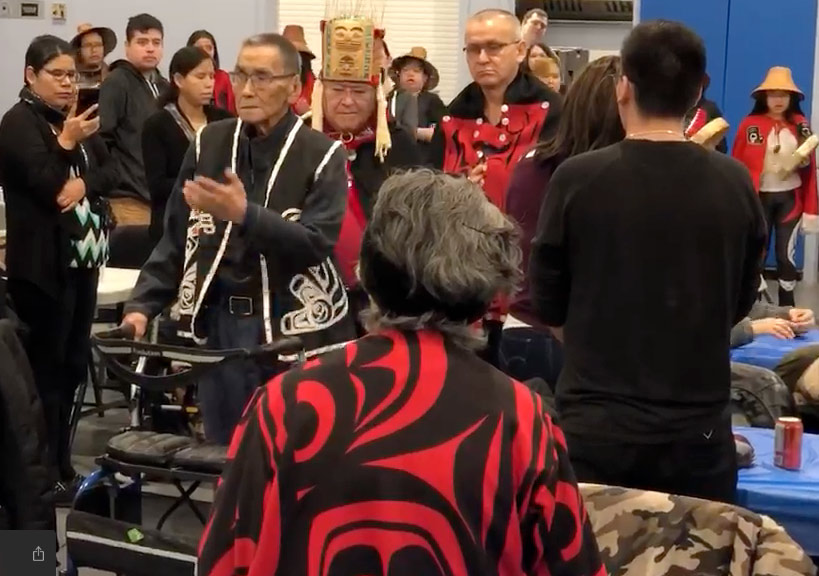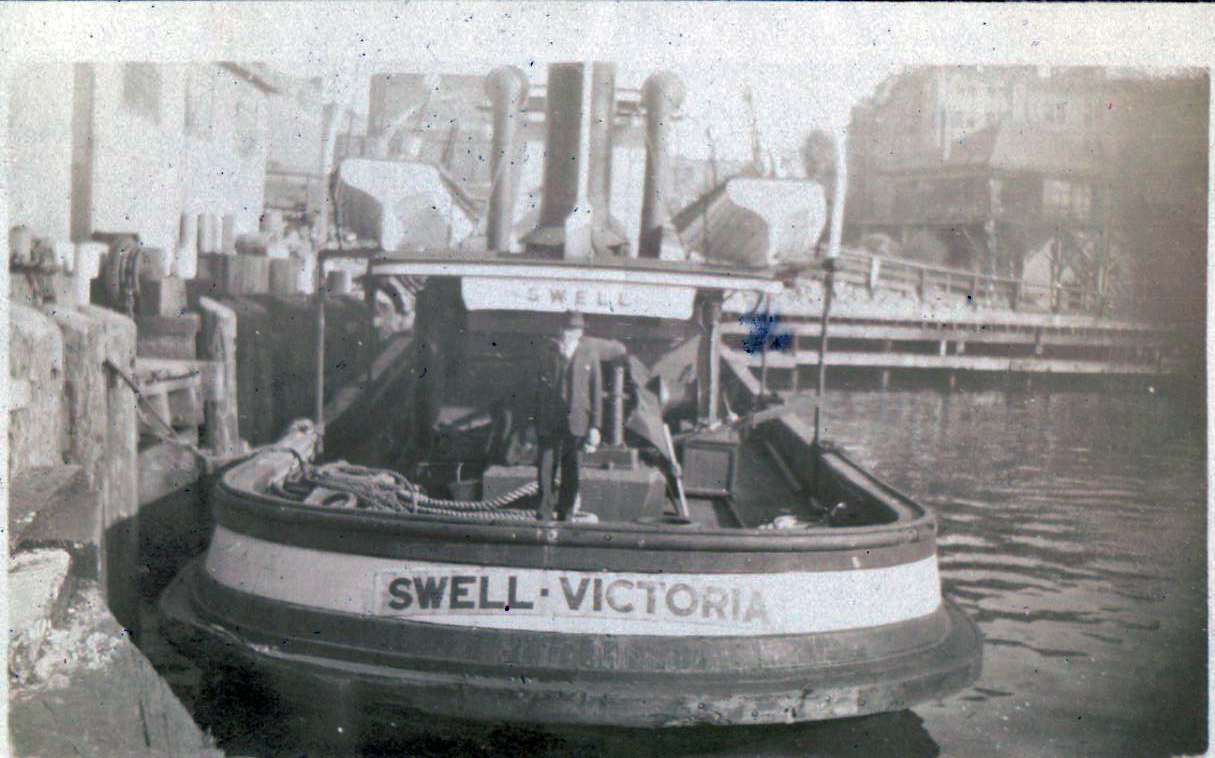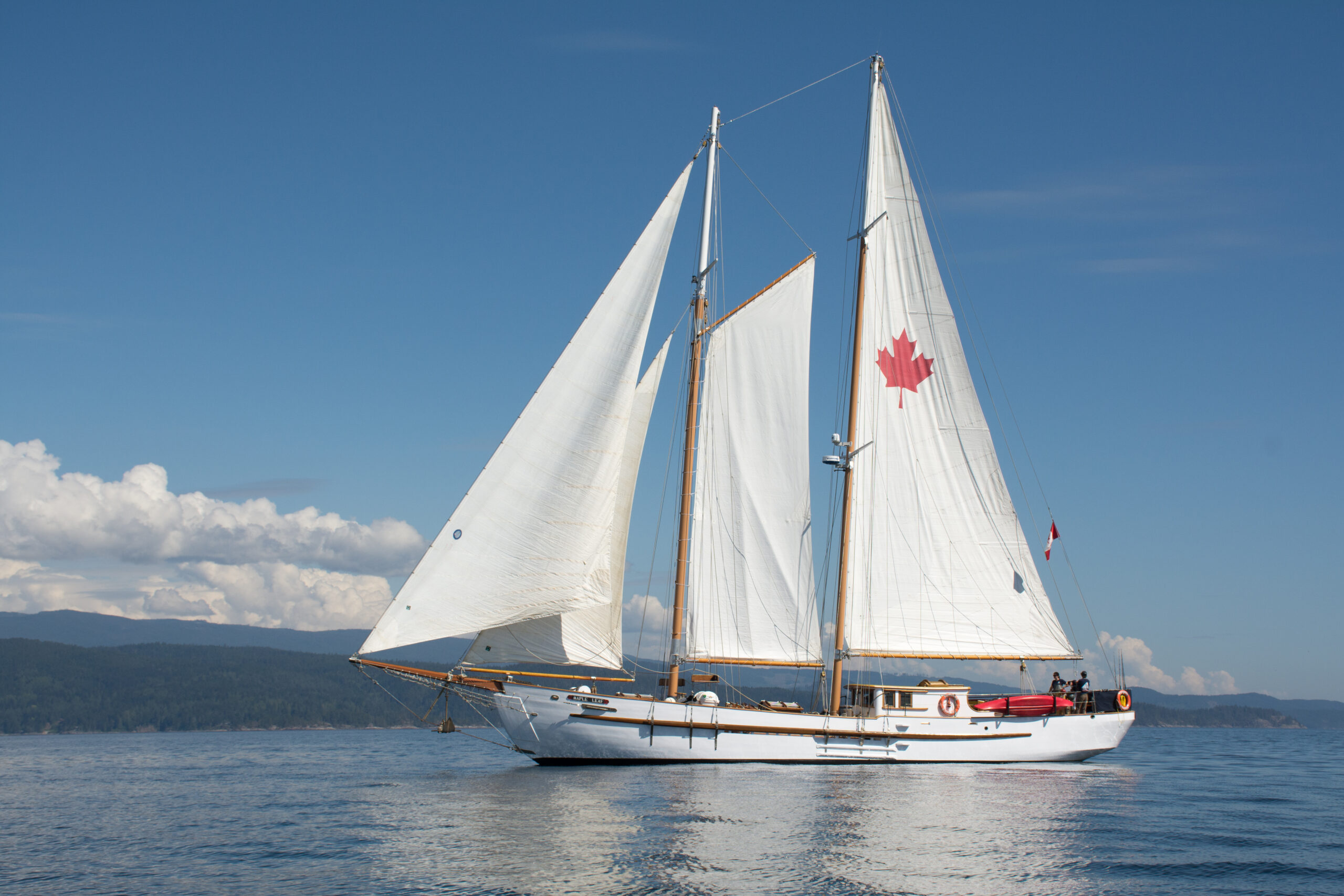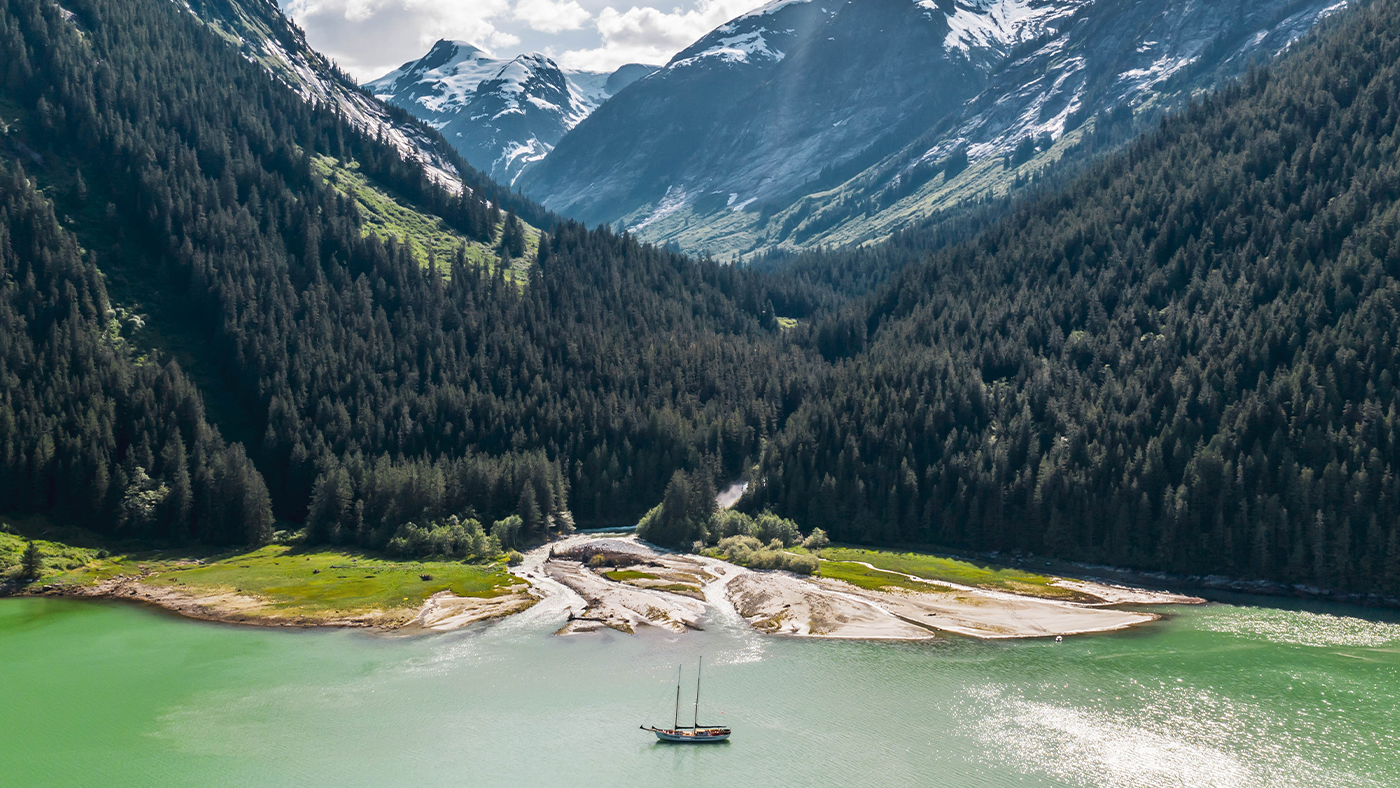Saturday afternoon, Jan 18, 2020: Snow drifted past frozen mountains and tilted into a valley where, at the foot of conifers, the iced-over Kitimat River slid into the sea.
Beside it, in the village of Kitamaat, the flakes piled, quiet and deep. The highway turned white, while trucks outside the community centre transformed into drifts and camouflaged themselves. Inside, though, the community centre was far from frozen.
Under bright lights and next to tables of food, Wa’xaid (elder Cecil Paul), a man many may never have heard of, was being feted by chiefs, eco-warriors, community builders, politicians, businesspeople, and a representative from the Royal Canadian Geographical Society.
The occasion was the awarding to Cecil, by the Society, of the Louis Kamookak medal for his contributions in making the geography of this great North American landscape better known to Canadians and the world.
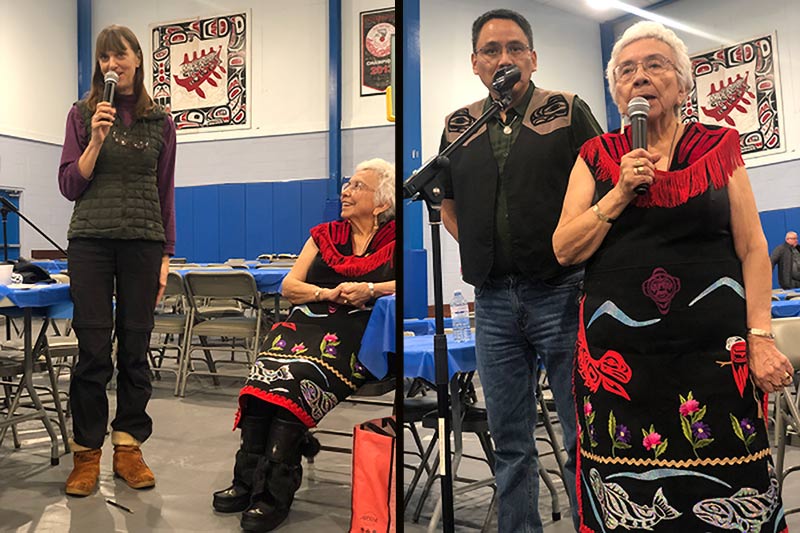
Down the highway, a half a day’s travel, you could have encountered the now-famed Wet’sewet’en blockade, in support of their hereditary chiefs’ wishes to protect the land. That is just one in a continuum of actions that hereditary chiefs have taken to steward this remarkable place. The work that Cecil did is another place on that continuum.
It seemed fitting that the community arranged the ceremony in midwinter, tucked up an inlet in Haisla territory, on the north coast. Winter is traditionally a time of gathering in a village for the telling of important history. Although not a lot of people may know Cecil Paul’s name, he has mightily contributed to history.
Although the blizzard prevented some guests from travelling, 150 people gathered to celebrate and witness what the soft-spoken Cecil Paul has achieved in his life.
Cecil entered the community centre in a procession with chiefs and singers and drummers. A true statesman, he proceeded slowly, acknowledging and bowing to the assembled guests. Over the course of the morning and the afternoon, people proclaimed the story of his life, his relationships, his achievements, his meaning to them in their life.
To write about why we at Maple Leaf Adventures nominated Cecil for this award would take longer than this blog post allows, and we can only recommend that you read Stories from the Magic Canoe of Wa’xaid by Cecil Paul and Briony Penn to get an inkling of an idea. Cecil has been likened to BC’s Nelson Mandala after his imprisonment, and the Dalai Lama of the coast.
His achievements – done in concert with many other members of his community, from family and neighbours to historians to ministers in the BC government, to people like Patagonia founder Yvon Chouinard and broadcaster/environmentalist David Suzuki – include the preservation of the great Kitlope valley, the return of the G’psgolox pole to the Hennaaksiala, and the preservation of sacred ground at Kemaano. Tying all of these achievements together is the reason Cecil was able to affect change: his graciousness to all people, his strong commitment to values, and his vision that we are in a great canoe together, paddling toward a common goal, and he welcoms everyone into the canoe to paddle together. Everyone – even people from a culture that, decades before, had abused him as a child and continued as to do so as he grew into a man.
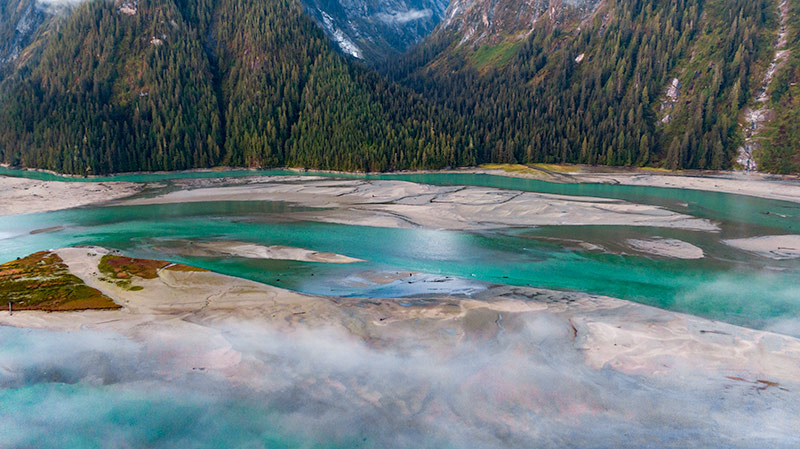
Cecil’s legacy transcends just physical achievements on the landscape. Through his philosophy and action, people across Canada and around the world have come to respect and understand the value of the coastal rainforest, the epoch-long ties between the Henaaksiala and other coastal peoples and this natural world, how those ties have never been severed, and how we must see them, recognize them, and respect them to this day.
With this philosophy and virtually no resources, Cecil and his community were able to preserve the world’s largest temperate rainforest, even at the height of industrial-scale clearcut logging in BC. The Kitlope is the site of human life and culture since at least the last ice age, a place so vast you can lose yourself in it for days; a place so culturally significant it ties the interior of North America to the coastline by way of grease trails that cut through the Coast Mountain Range from the interior plateau, bringing marine riches like oolichan grease east, and interior treasures like obsidian west.
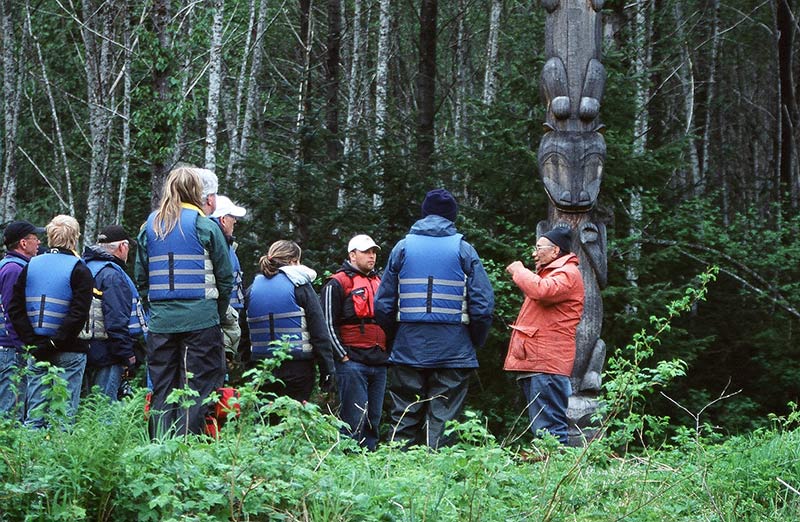
Cecil and his community were also able to convince Swedish museum curators who believed they were safeguarding and sharing a great piece of world heritage (the G’psgolox pole, taken without permission from the Kitlope in the 1920s) to return it to tiny Kitamaat village where few could see it.
Cecil’s accomplishments were built on top of two stark phases of his life: his childhood in the wondrous Kitlope valley with his grandparents and their teachings, followed by an awful phase where the government of BC ripped him from that ancestral home, transported him to an infamous residential school far away where he was abused and then spit out into a world that devalued him.
Somehow, after challenging decades, he had the strength to know he needed to return to the Kitlope and be healed. Cecil’s story is one of great triumph of the human spirit for good over evil. He knows we are all human and goodness is found in almost everyone. His is a hero’s journey in its purest form. We all are richer for hearing it. It is a story we so desperately need as a role model in this world. Yet, in keeping with Cecil’s character, it is a story most people have never heard.
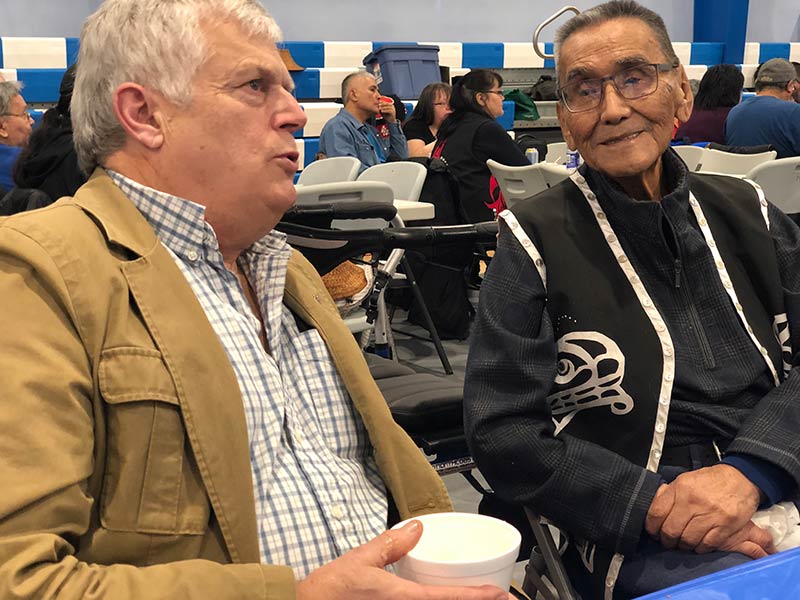
Just as, tucked away from the Canadian ‘power centre’ of Ottawa, where the RCGS medal is usually awarded, the ceremony for Cecil unfolded surrounded by the silence of the mountains and the frozen river, as the darkness of a winter’s day descended, and the snow settled over it.
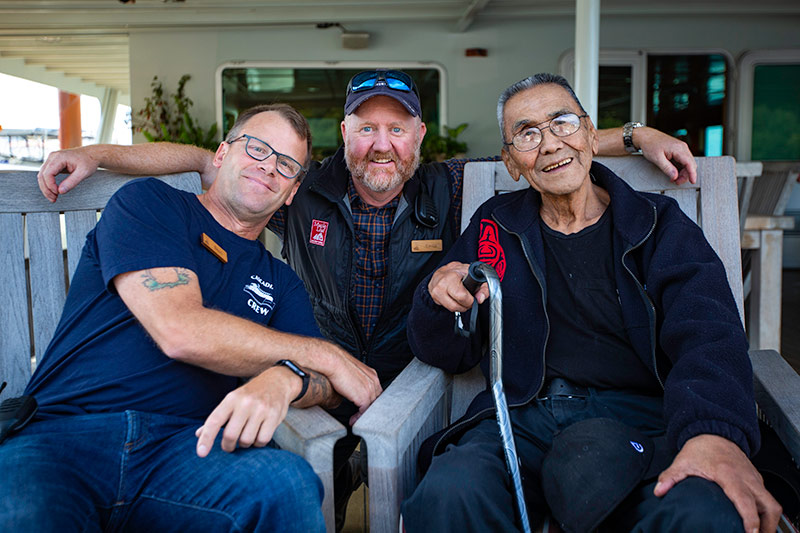
“I am grateful my life brought me in touch with Cecil,” says Maple Leaf Adventures’ CEO Kevin Smith, who was at the ceremony. “His generosity of spirit and his belief in human goodness is an example for us all. His graceful tenacity has saved the Kitlope forever. And further, his sharing with our guests has helped so many people know and respect coastal First Nations and the need for reconciliation.”
It was an honour for Maple Leaf Adventures to have helped create this small acknowledgement for Cecil. Since our early days he has been an ambassador and guide for our trips in the territory of the Hennaksiala and especially in the Kitlope. His trust and friendship is a gift that is truly one of the greatest we and our guests have been given.
We also appreciate the Royal Canadian Geographical Society for recognizing his work and travelling to Kitamaat to award the medal. And we thank the Kitamaat community and band council for embracing the award and the occasion to put on such a moving event.
– Maureen Gordon
